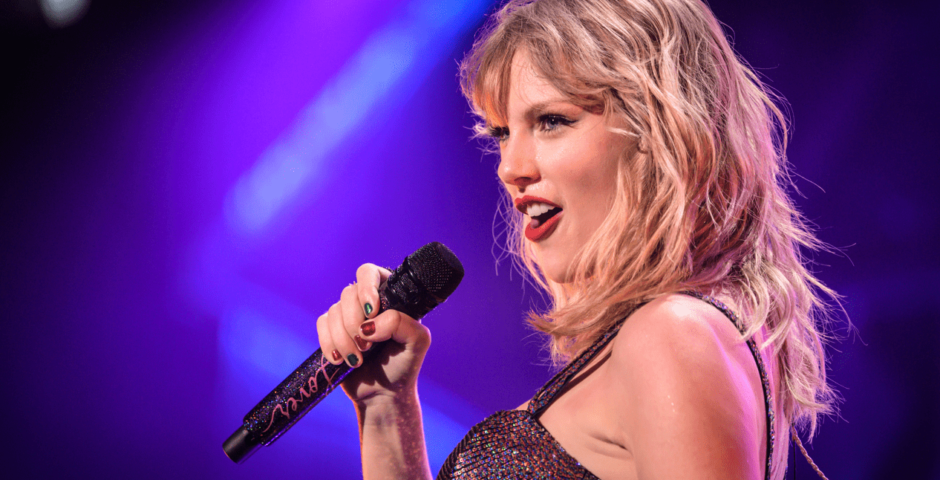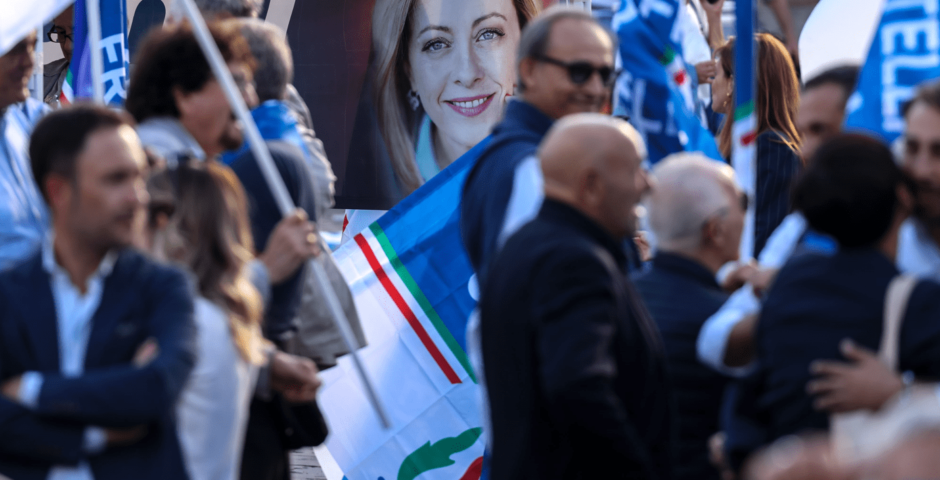(Not) An Ivory Tower? Extraordinary EP Parliamentarians and Candidates

From a beekeeper and a Paralympian to a former Disney presenter and a TV chef.
Recently, in this Shaping Europe article, you could read more about voting rights and candidacy for the European Parliament elections. Of course, it’s crucial to know a lot about that, but it’s much more enjoyable to examine the most remarkable, controversial, or interesting parliamentarians (2019-2024) and candidates for the European Parliament (EP)! Because even though we color in the circle of one person every five years, we actually know very little about Members of the European Parliament. This might quickly create the impression that they – as politicians – live in an ivory tower. Still, appearances can be deceiving: parliamentarians are (often) very ‘(extra)ordinary’ people, just like you and me! Some had completely different careers before entering politics, while for others, reaching the European Parliament (EP) was meant to be.
From award-winning journalists to a former Disney TV host… Here, we present to you:
Patrick Breyer. This German MEP is one of the four members of the EP belonging to the Pirate Party. What makes him special? He is a journalist who regularly brings some scandals to light. Breyer regularly comes up with sensational revelations. For example, in 2016, he revealed that there was misogynistic, sexist, and racist behavior taking place at the police academy in Eutin, Germany. The Ministry of the Interior knew it but did nothing about it. This event became known as the WhatsApp affair. Keep up the good work, Breyer!
Silvia Modig. Modig, MEP for the Finnish Left Alliance party and belonging to the Swedish-speaking minority in Finland, used to be a journalist, radio host, and TV presenter. Along with the current Finnish Minister of Social Affairs and Health, Aino-Kaisa Pekonen, Modig participated in the TV show Amazing Race Suomi (Suomi is the Finnish name for Finland), where participants have to travel long distances with minimal money as quickly as possible. Those who reach a pit stop last are eliminated. Their participation could have been more successful, as Modig and Pekonen were the second team to be eliminated. But it was undoubtedly an adventure!
Ioannis Lagos. Lagos is the founder of the Greek neo-Nazi party Golden Dawn and has been an MEP for National Popular Consciousness since 2019. National Popular Consciousness was founded by former members of Golden Dawn but no longer exists. The Greek government tried to ban the party’s existence. Lagos’ actions for Golden Dawn have led to arrests multiple times. He was convicted of involvement in the murder (!) of hip-hop artist and anti-fascism activist Pavlos Fyssas. He was also accused of attacking Egyptian fishermen. Since 2020, the Golden Dawn party has been classified as a criminal organization, and Lagos was additionally sentenced to 13 years in prison for leading a criminal organization. However, to this day, Lagos has not been extradited and still sits in the European Parliament. However, his parliamentary immunity has been lifted.
Kira Marie Peter-Hansen. This Danish politician for the Socialist People’s Party was the youngest MEP ever at 21 years, 3 months, and 3 days. To pursue her European dream, Peter-Hansen quit her university studies. This goes to show; that with only your ideals, you can go a long way!
David Lega. This Swedish MEP (Christian Democrats) has quite a few achievements in his name! As a Paralympic swimmer, he broke fourteen world records! Lega participated in the Paralympic Games in Atlanta (1996) and Sydney (2000), as well as the World Para Swimming Championships in 1994 and 1998. In the latter competition, he won three gold medals. After his swimming career, Lega didn’t immediately enter politics. He first started several businesses and launched the clothing brand Lega Wear.
Michèle Rivasi*. This former leader of Greenpeace France and MEP for Europe Écologie-The Greens died suddenly on November 29, 2023, from a heart attack while on her way to the European Parliament.
Ladislav Ilcic and Nico Semsrott. There are certainly plenty of creative individuals in the European Parliament too. The Croatian politician Ilcic was a renowned violinist before his political career. He played in a symphony orchestra and a mariachi band. The German Semsrott, now an independent member, is a cabaret artist and spoken word poet (slam poet). In his pieces, he portrayed himself as a ‘demotivational coach’. Semsrott was on Die Partei’s list, a party whose views are described by The Guardian as Dada-esque nonsense. One proposal from the party, for example, is to ban people from voting during the last 18 years of their lives.
Assita Kanko. Kanko is a Belgian MEP for the New Flemish Alliance. She was born in Burkina Faso, where she was a victim of female genital mutilation as a child. Since then, Kanko has been advocating against female genital mutilation and forced marriages. Perhaps you’ve seen her talking about this on television.
Sarah Wiener. This German-Austrian MEP for the Greens has launched several restaurants and cafes (it makes sense with ‘Wiener’ as a surname, right?!), including ones at the station in Hamburg, Futurium, and the Mercedes-Benz Museum. From 2007, she was a TV chef for five years. One could say she’s the German Gordon Ramsay! Through her foundation, the Sarah Wiener Foundation, Wiener also aims to promote healthy eating habits among children and young people.
Thomas Waitz. The Austrian Green Party has a rich array of exceptional parliamentarians, and Waitz is one of them. He embarked on a world trip, started a farm, planted forests, and is now mainly an apiarist and border collie trainer. Oh, and he’s also a politician!
Ljudmila Novak. Yes, Slovenian Novak certainly fits into this list. The MEP for New Slovenia speaks Esperanto – an artificially created, international, and unofficial language – and participated in the European Esperanto Union. Worldwide, there are approximately 63,000 people who speak Esperanto. Fascinating.
Morten Helveg Petersen. Some people are born for politics. One of those people is Danish Morten Helveg Petersen (Renew Europe). His father was the Minister of Foreign Affairs, his brother the Minister for Development Cooperation, his grandfather was a minister, and his grandmother was the mayor of Copenhagen. As a bonus, Petersen spent part of his childhood in Brussels, where he attended the European School. His European career is 100% meant to be!
Irena Joveva. This Slovenian, representing the Freedom Movement in the EP, was formerly a news reporter. Now, there are more people in the EP with a background in journalism. Still, Joveva is unique: she won the Watchdog Award (Slovenian Association of Journalists for Debutant of the Year). In her reporting, Joveva focused on many European topics, and she continues to do so now!
Sophie in ‘t Veld. The Dutch In ‘t Veld started her political career with the party D66 but made headlines half a year ago when she switched to the pan-European party Volt. It’s not uncommon for politicians to leave one party and join another, but In ‘t Veld’s story has a little extra twist. She’s running as the lead candidate on the electoral list, not in the Netherlands, but in Belgium for the upcoming European elections. You’ll soon read about her experience campaigning as a Dutch person in Belgium in our interview with her! Stay tuned!
Alice Bah Kuhnke. The Swedish-Gambian Bah Kuhnke had a very different job before becoming an MEP: she was a television presenter, including for SVT, the Swedish national broadcaster. Her career began with the program Disneyklubben (Disney Club). Later, Bah Kuhnke had her own talk show and presented the current affairs program Kalla Fakta (‘Cold Facts’). In 2001, she hosted the special music gala Artists Against Nazis.
Magdalena Adamowicz. The Polish Adamowicz (an independent member of the EPP group) lost her husband and father of her daughters, Paweł Adamowicz, mayor of Gdansk, in 2019 after he was stabbed during a major fundraising event in the city. A few months later, she announced her candidacy for the European Parliament elections. Since then, she has focused not only on her ideals but also on those of her husband. Her main focuses are immigration and rights for LGBTQ+ people, which she – unlike the formerly ruling PiS party – supports positively.
Maylis Roßberg and Raül Romeva. Roßberg and Romeva are the lead candidates of the EFA (European Free Alliance) in the upcoming EP elections. Both focus mainly on the rights of (political) minorities, diversity, and self-determination – the EFA is a political party that especially supports separatist groups and regional minorities. Although they are the main candidates for the EFA, it is unlikely that Roßberg and Romeva will end up in the EP. Romeva was a member of the Catalan government that organized the referendum for self-determination in 2017, which was considered illegal by the Spanish authorities. Romeva was sentenced to 12 years in prison but was granted amnesty in 2021. However, it is still certain that he will not hold any political positions until 2030.
The story of Roßberg may be less sensational, but certainly no less relevant. Roßberg belongs to the Danish minority in Northern Germany. The party she is a member of, the Südschleswigsche Wählerverband, is unlikely to reach the German electoral threshold of 5%. Overall, gaining seats does not seem to be the primary goal of the EFA, as evidenced by their choice of Spitzenkandidaten. However, the EFA does aim to highlight ‘neglected ideas’, including their positions on self-determination.
Vote, vote, vote!
Well, now you’re informed about several interesting Members of the European Parliament. However, during the elections, try to forget all these fun facts for a moment and instead vote for someone (and their party) because you agree with their ideals. Good luck choosing!
Loes ter Horst is pursuing a Master’s in Middle Eastern Studies at the University of Amsterdam. Last summer, she obtained her MSc in Crisis and Security Management from Leiden University, following her earlier completion of a BA in Liberal Arts and Sciences at Utrecht University.
Image: Shutterstock




